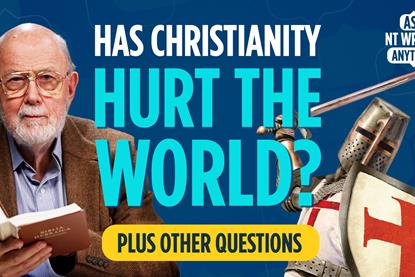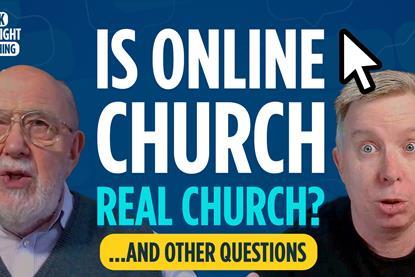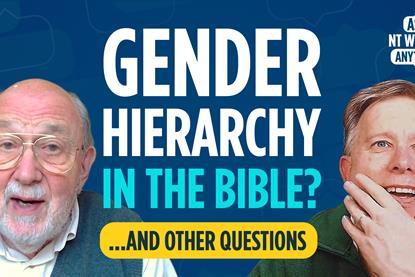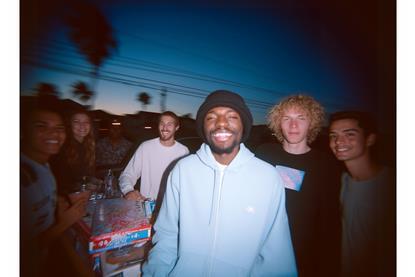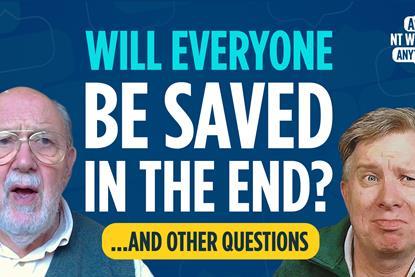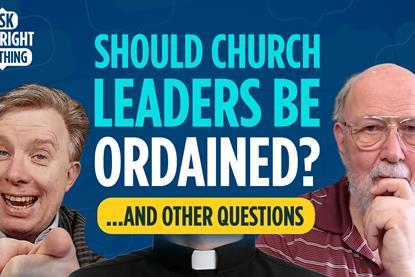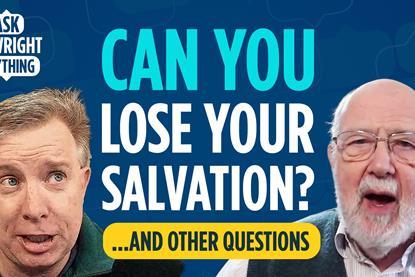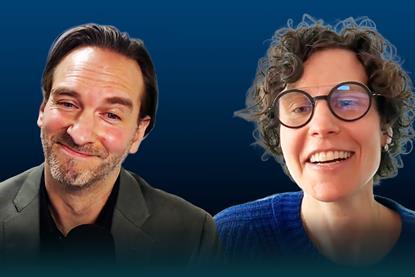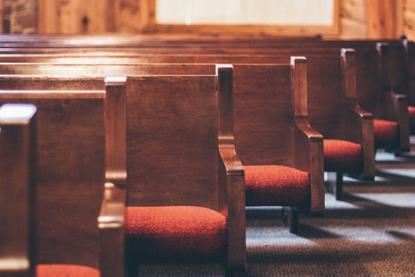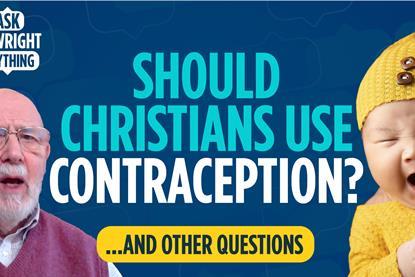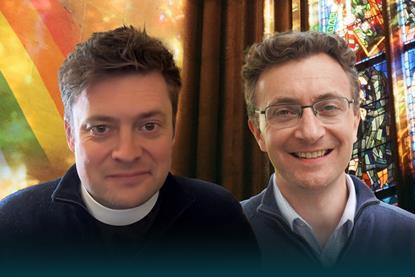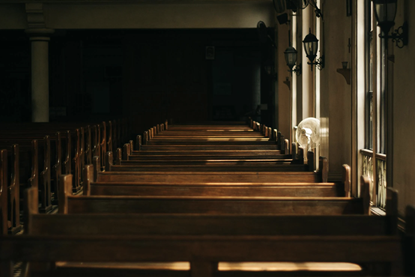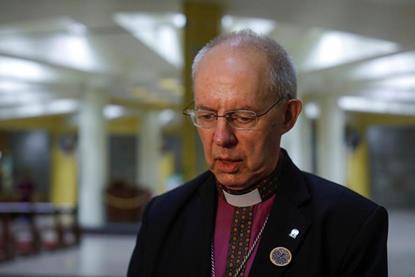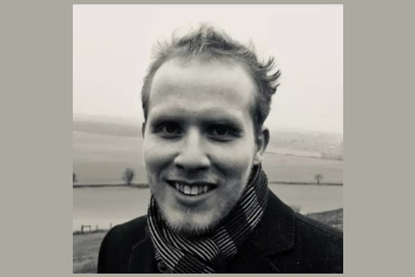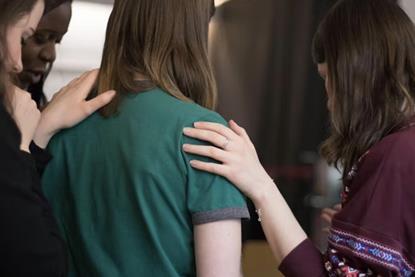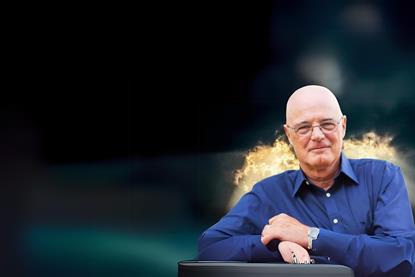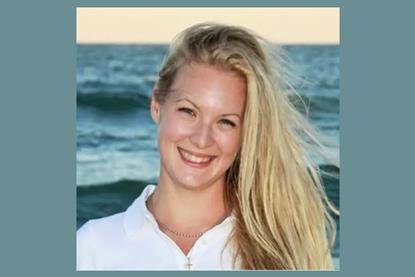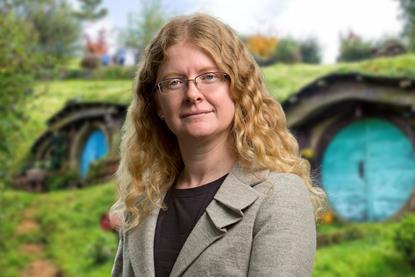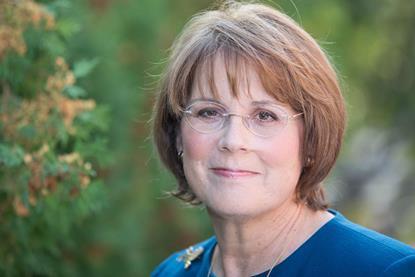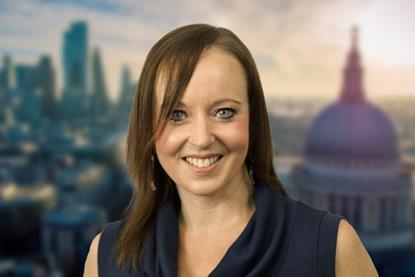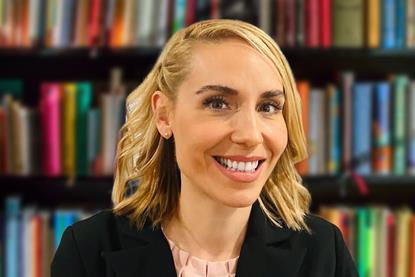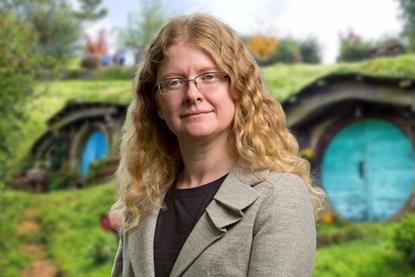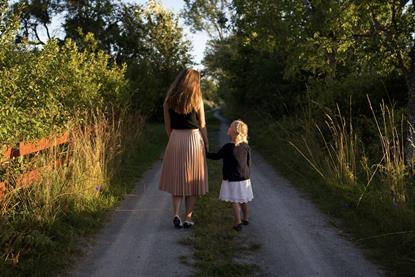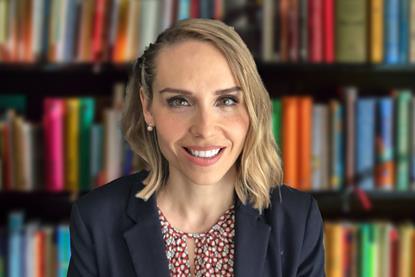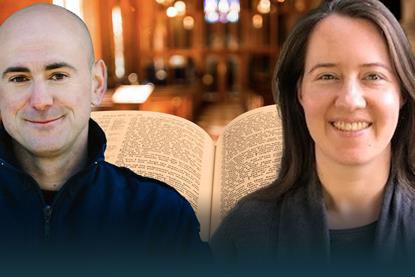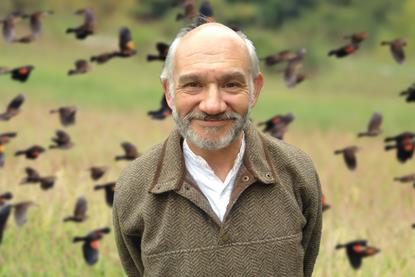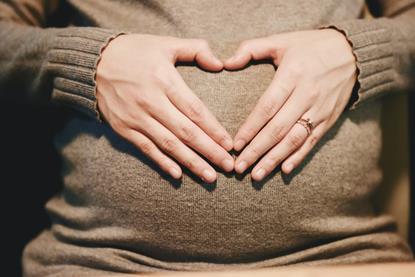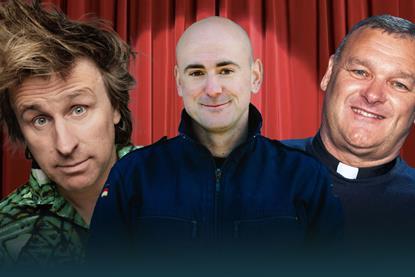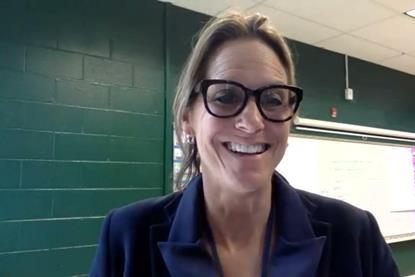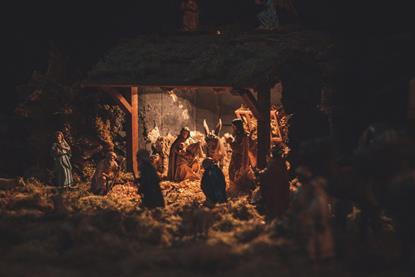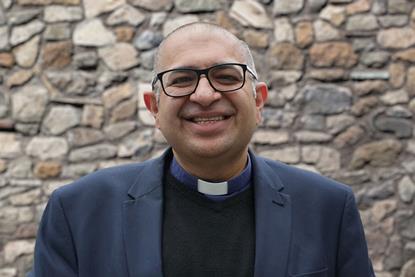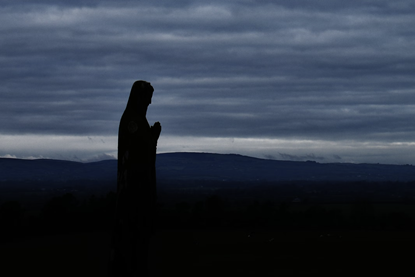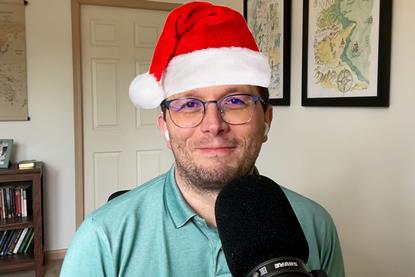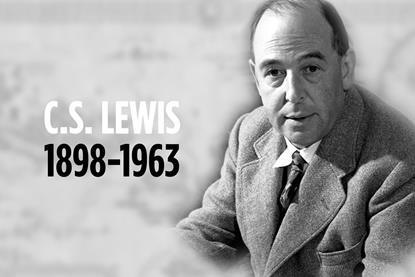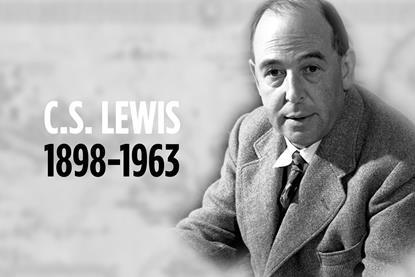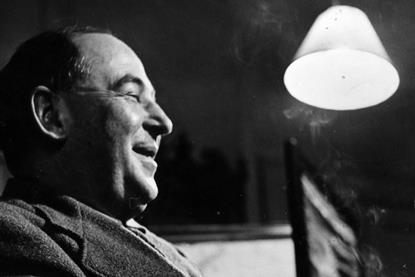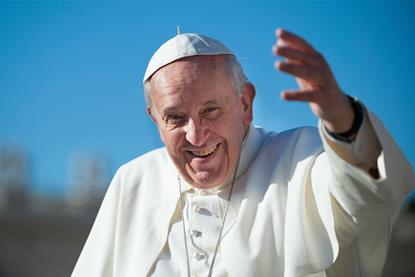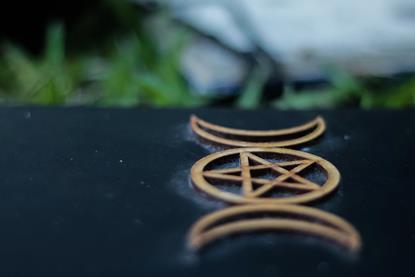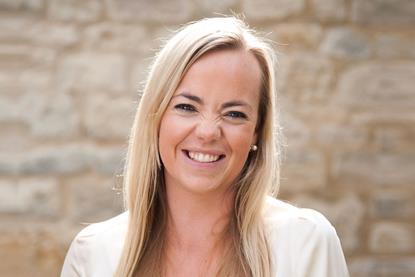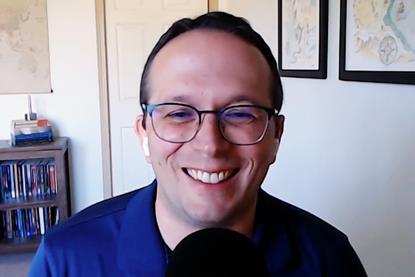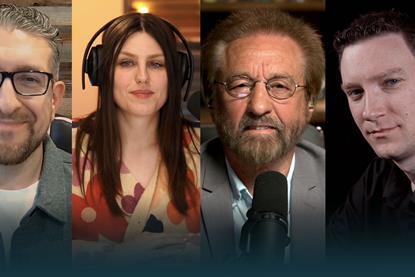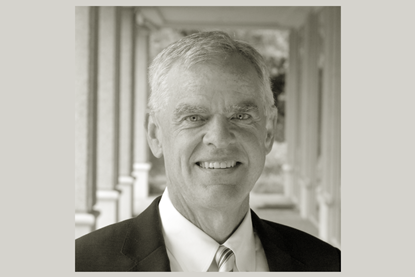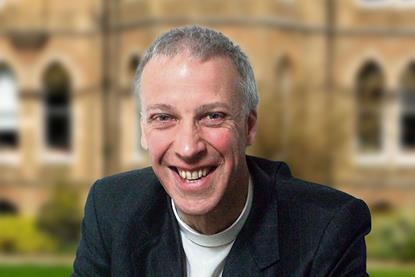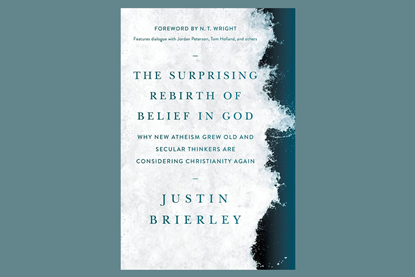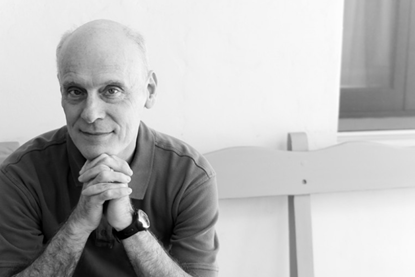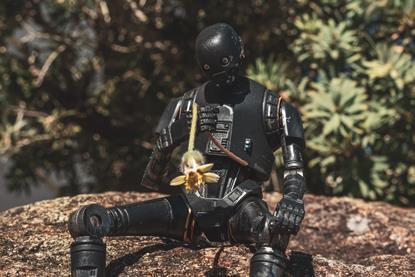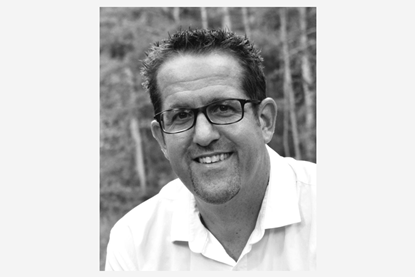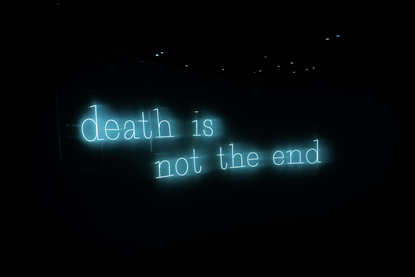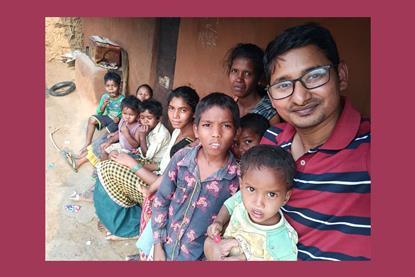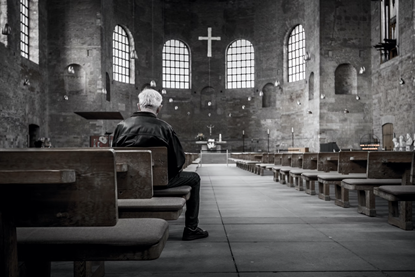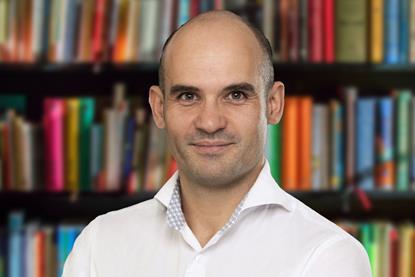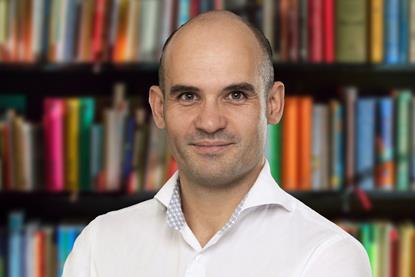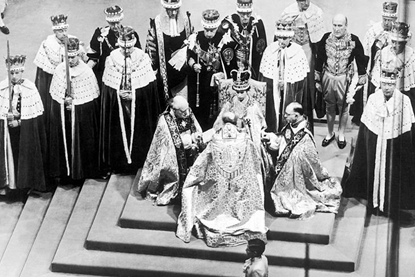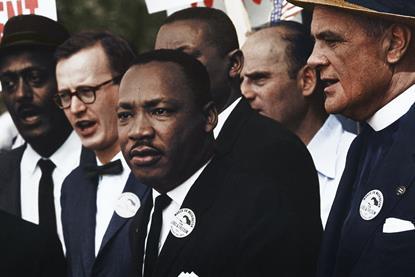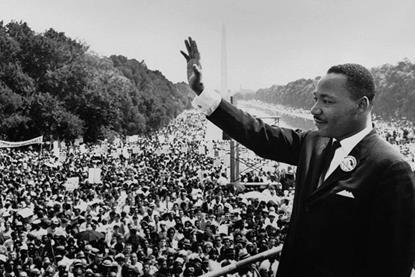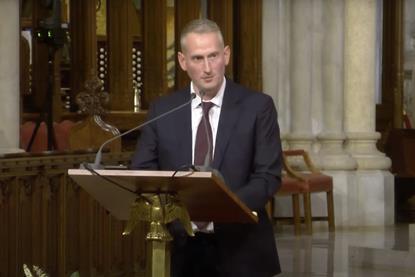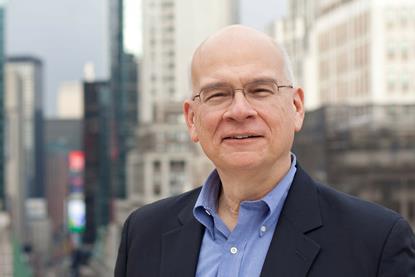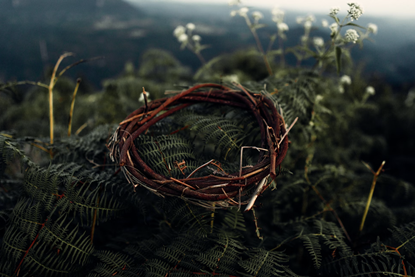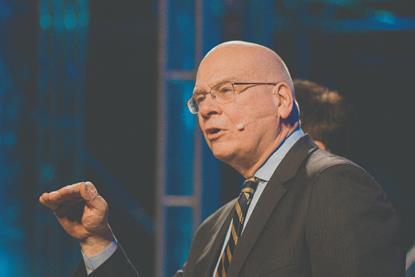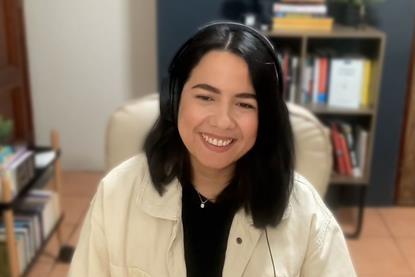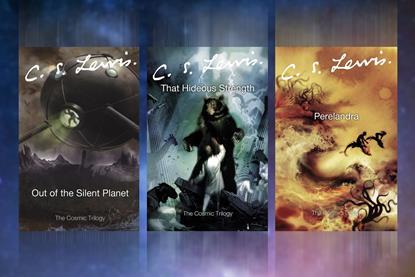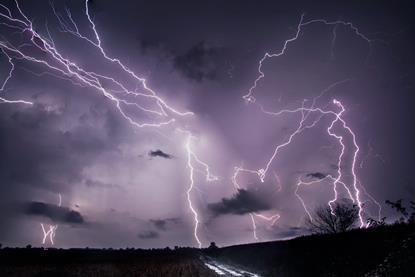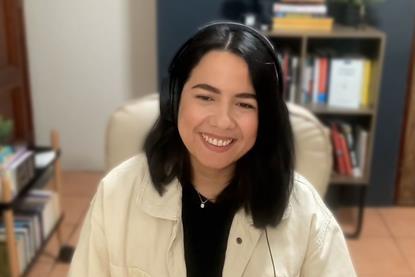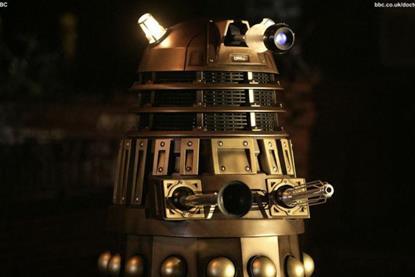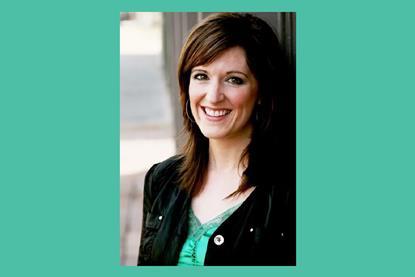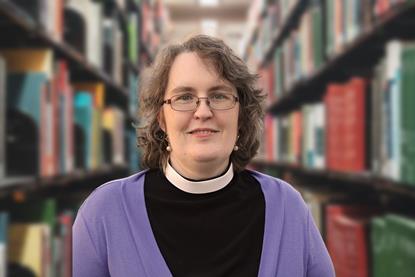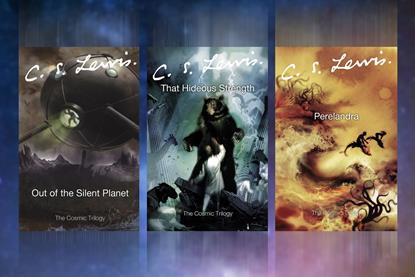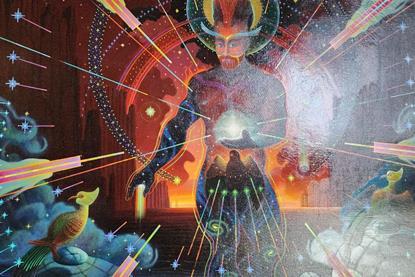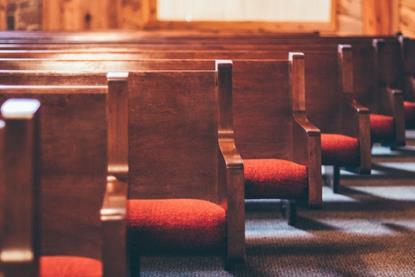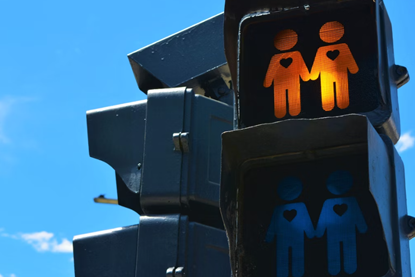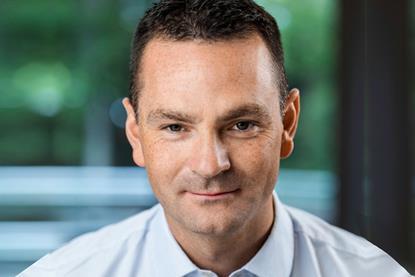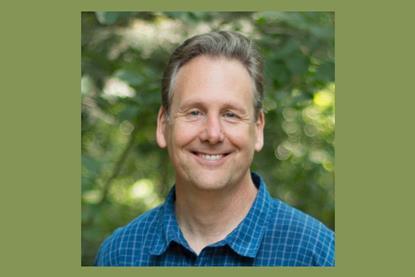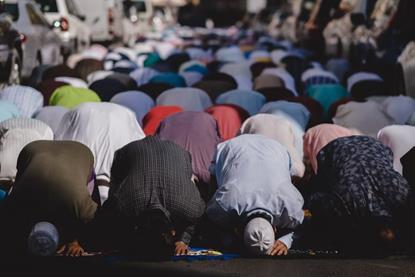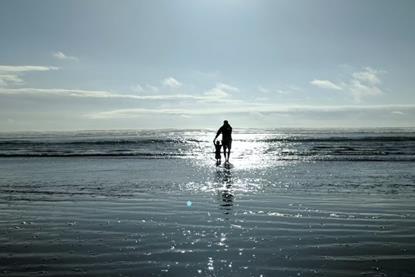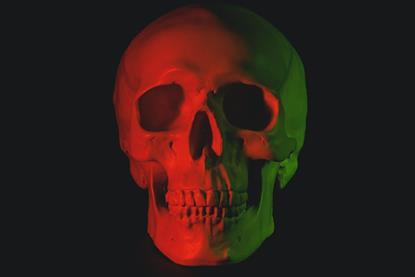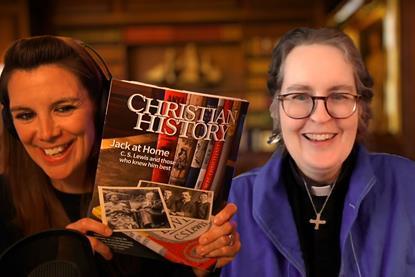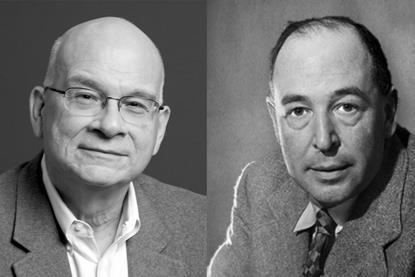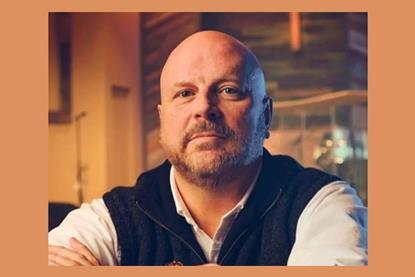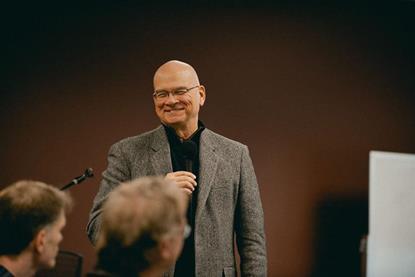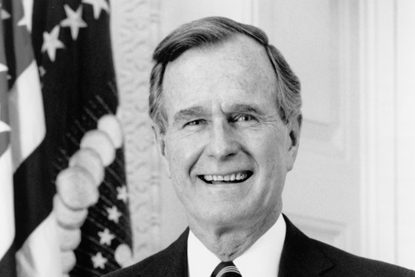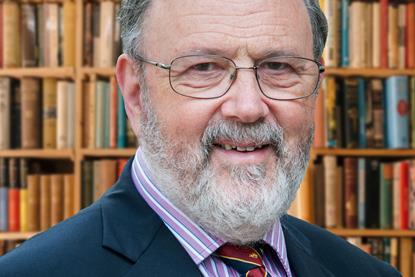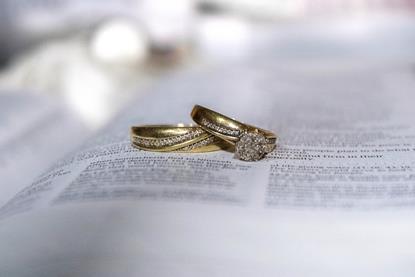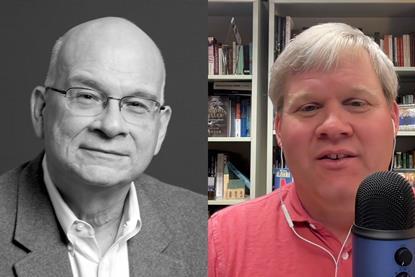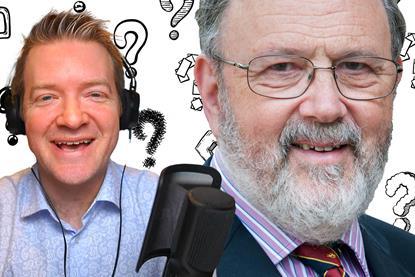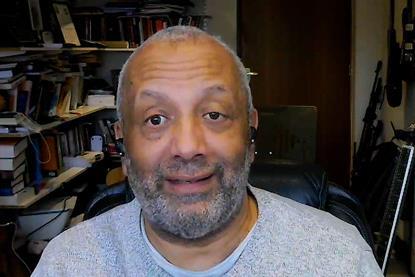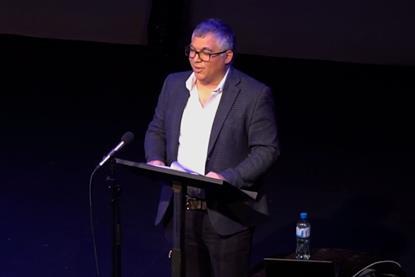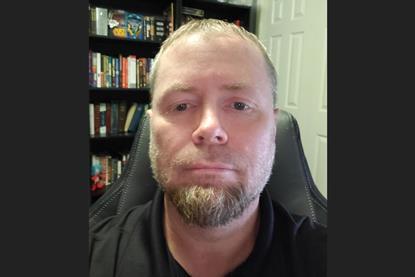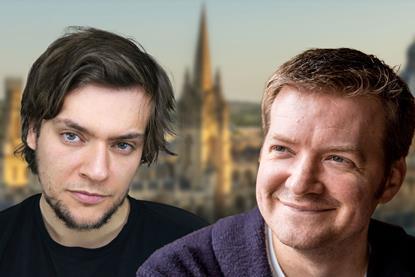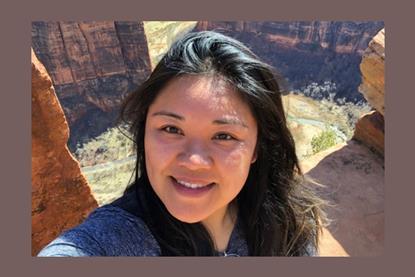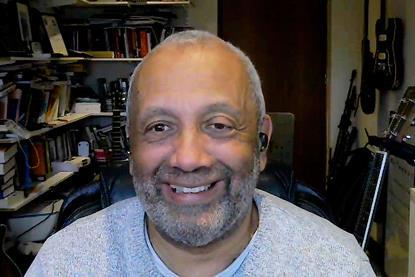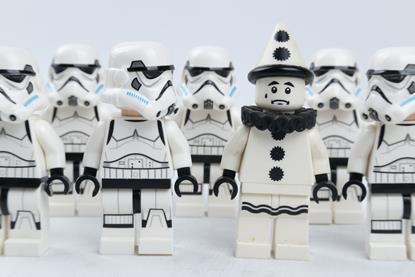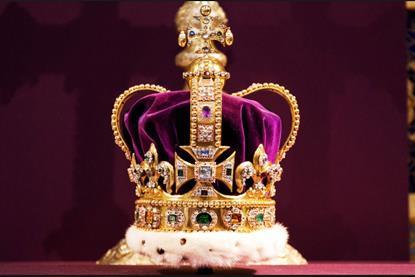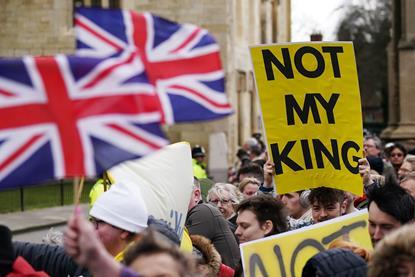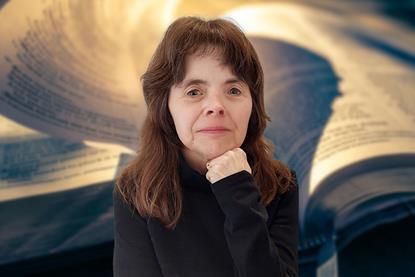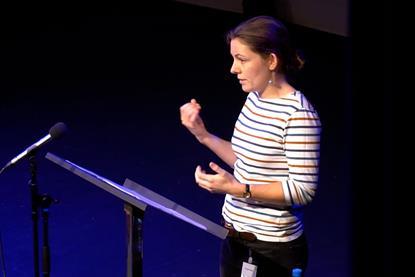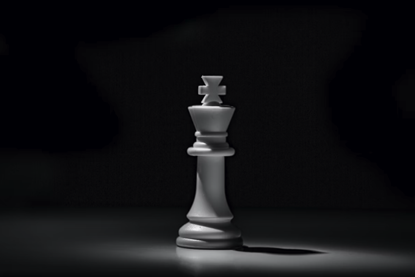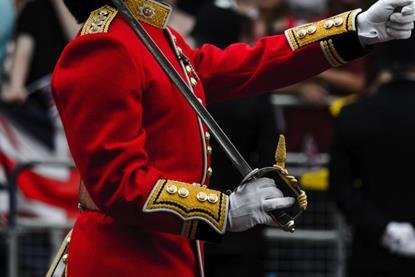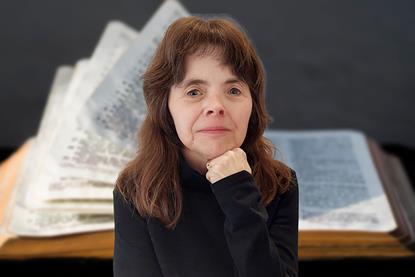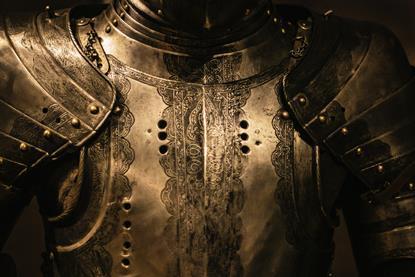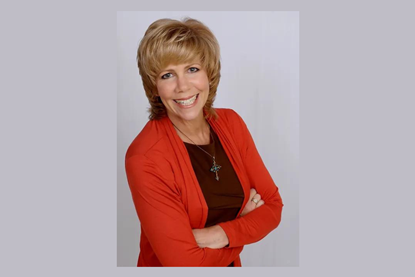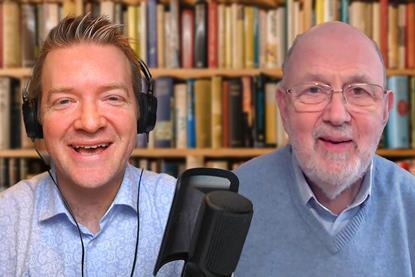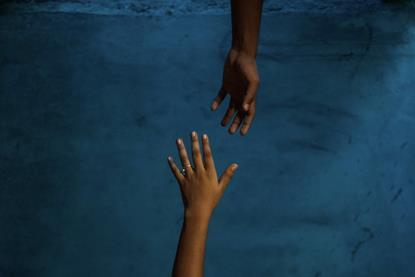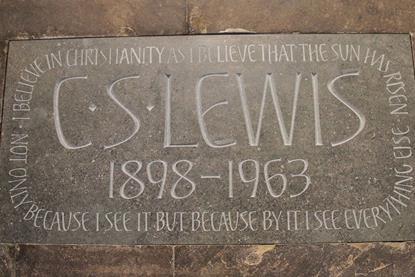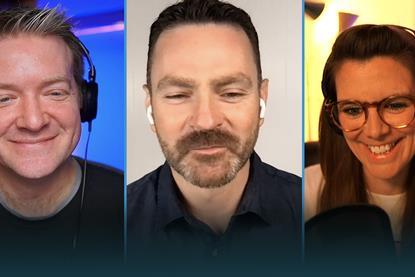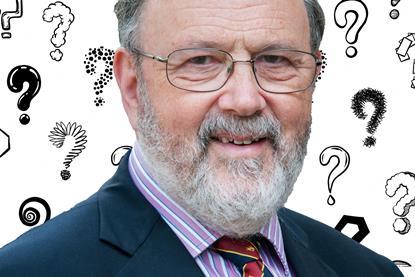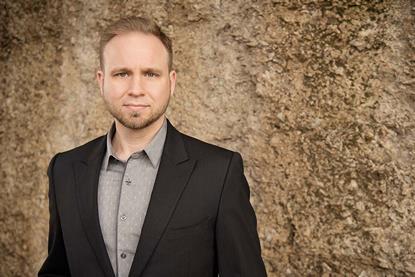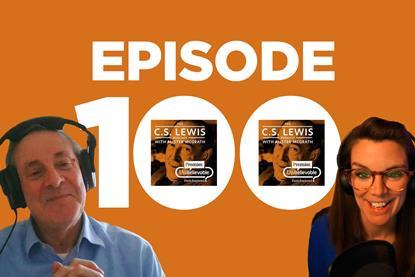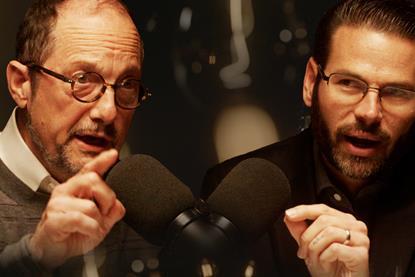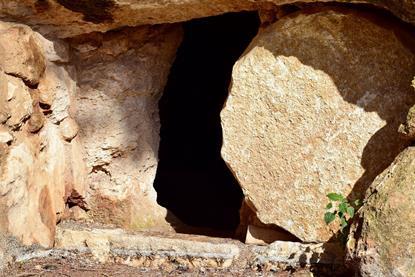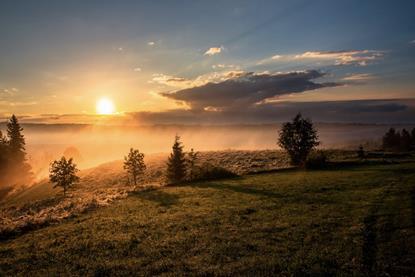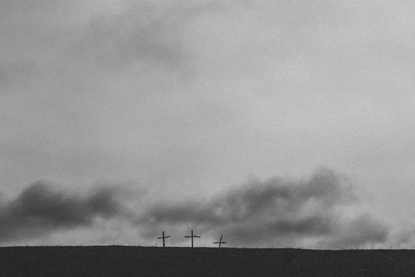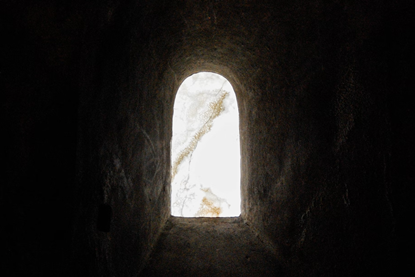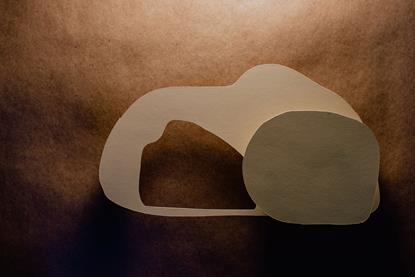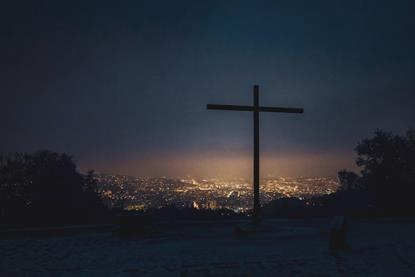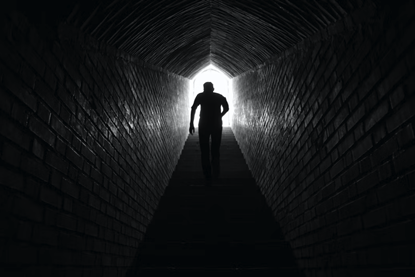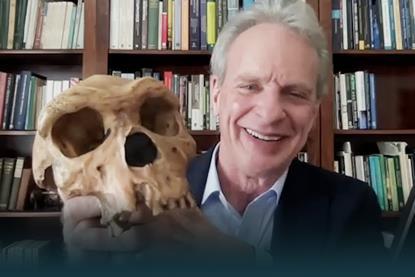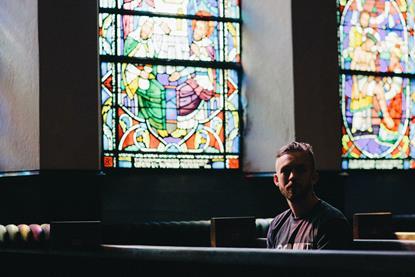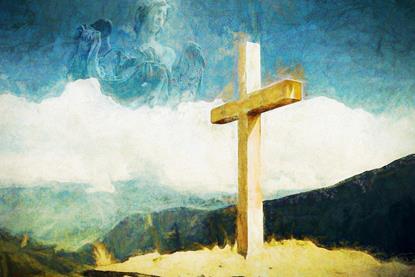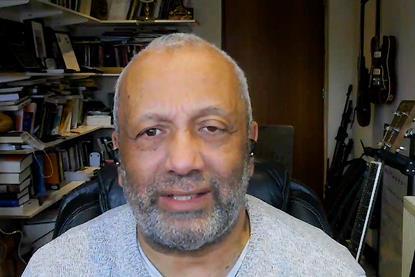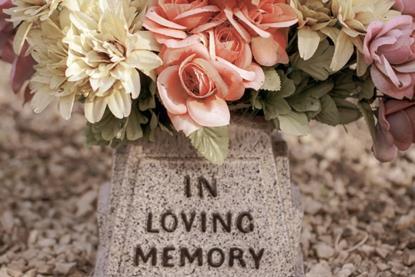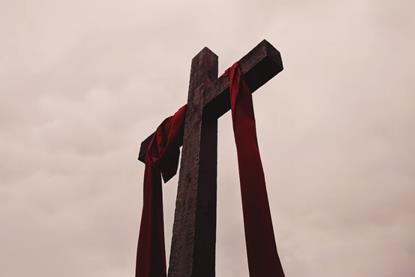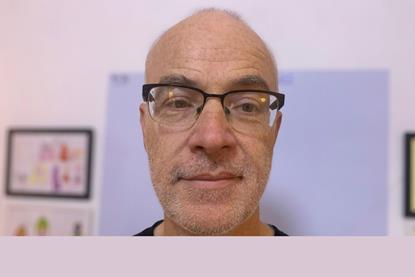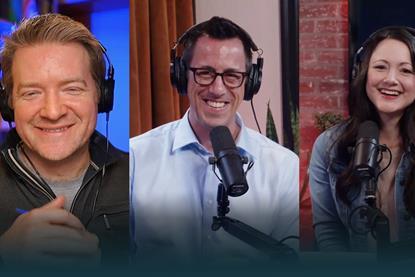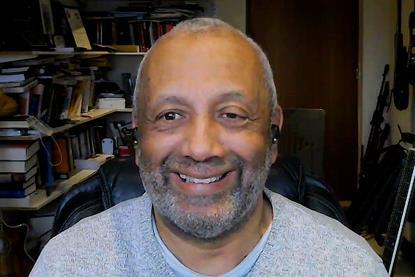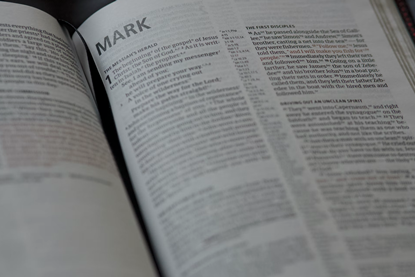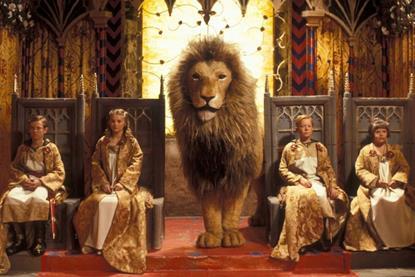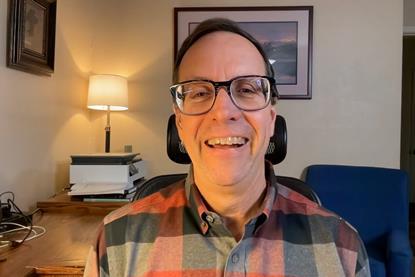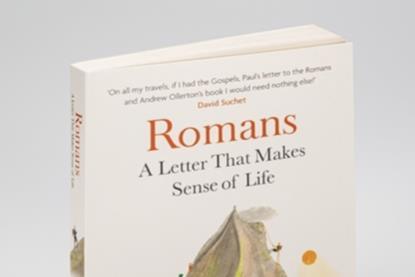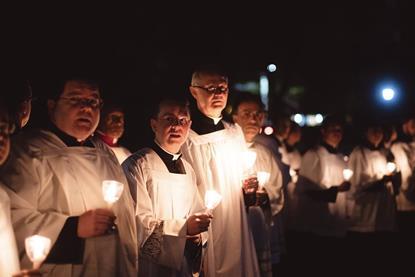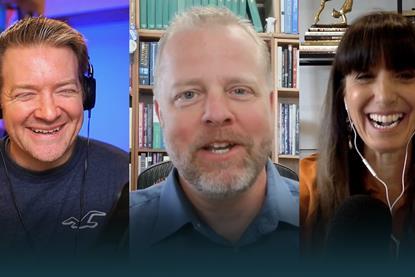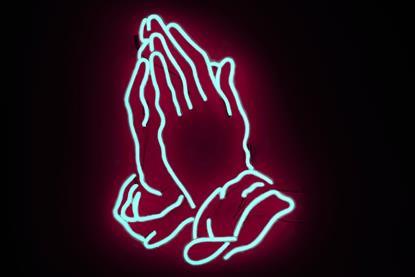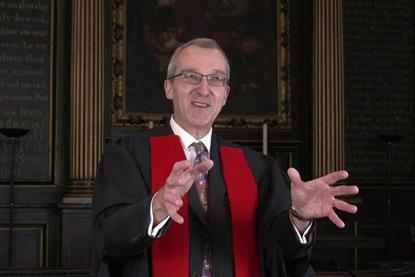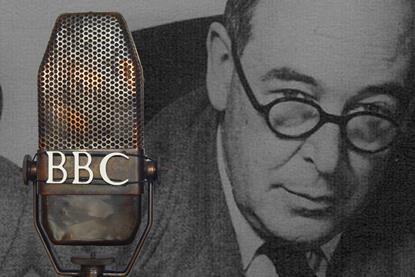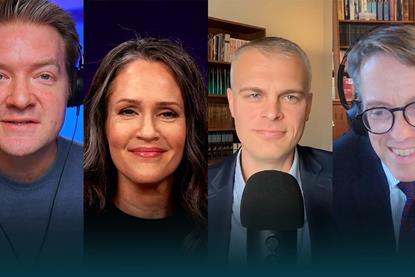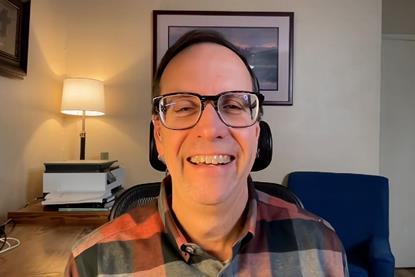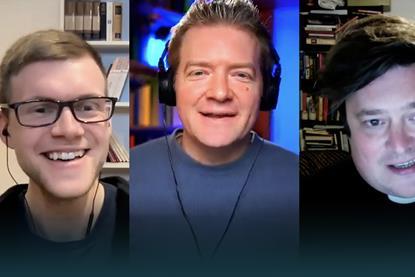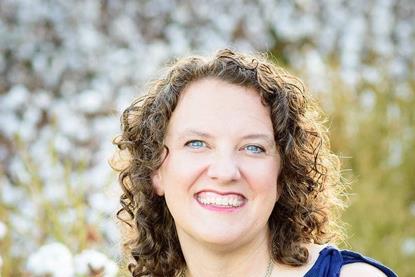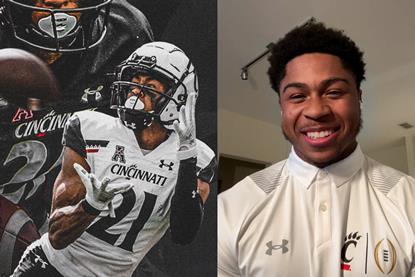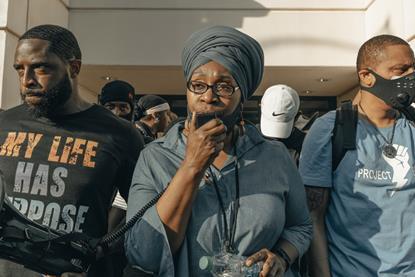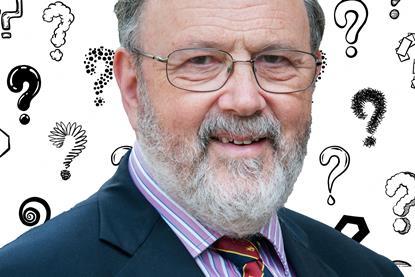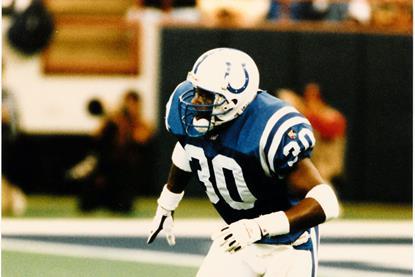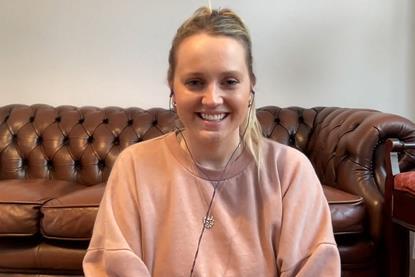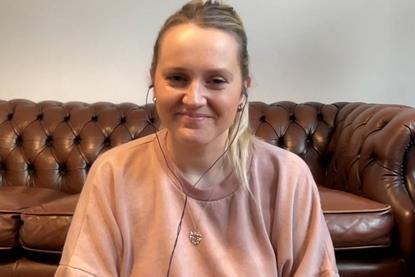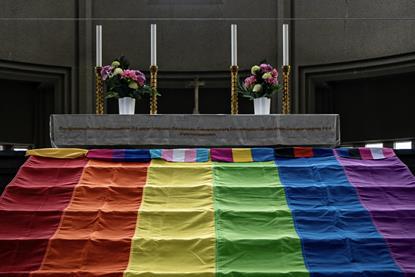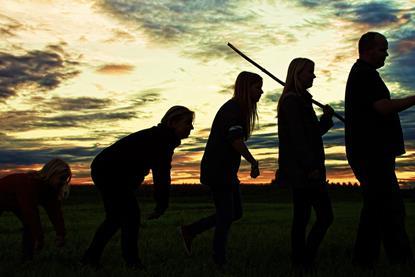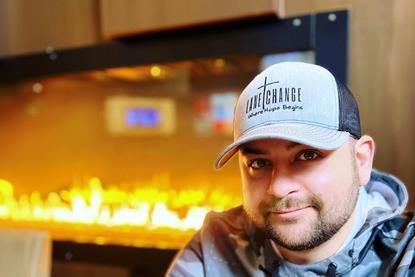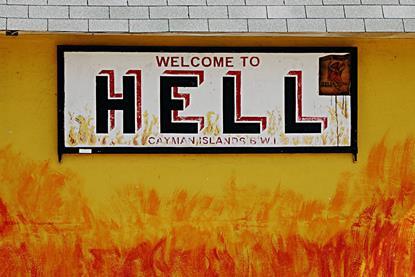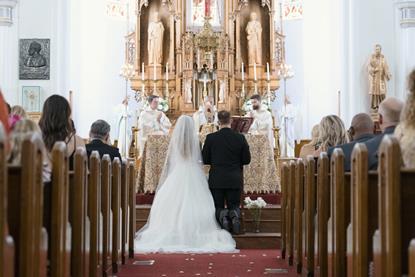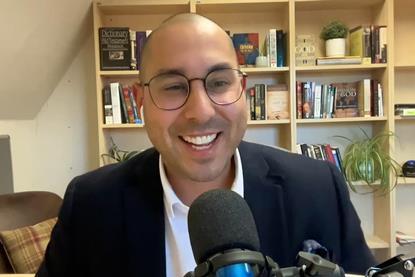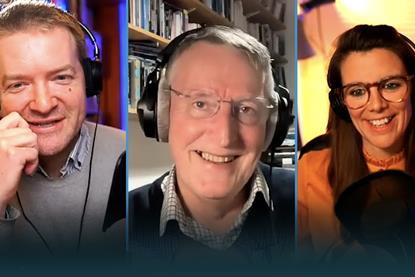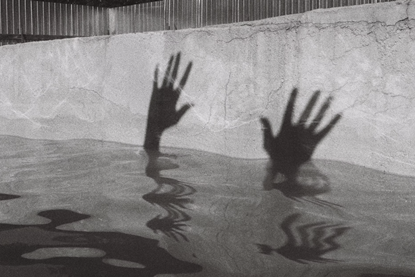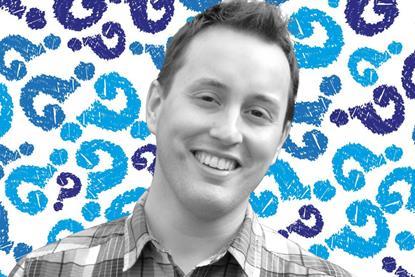Church
Is Christianity bad?! Has religion done more harm than good? NT Wright and Mike Bird LIVE in London
N.T. Wright and Mike Bird and reunited together in person in Premier’s new London studios for a big Ask NT Wright Anything episode.
What is real church community?
Tom Wright and Mike Bird begin with a thoughtful look at church models, exploring how the New Testament envisions the people of God, why no single structure is “the” biblical one, and how modern churches can still reflect the unity and mission of early Christian communities.
Gender Hierarchy, Habakuk 2:4, What bits of the Bible did Paul write? Did Paul write the Pastoral Epistles?
In this episode of Ask NT Wright Anything, Tom Wright and Mike Bird tackle tough questions on gender hierarchy, Paul’s use of Habakkuk 2:4, and the authorship of the pastoral epistles. They clarify what “submission” really means in Ephesians, explore the dual meaning of faith in Habakkuk, and discuss whether Paul wrote all the pastoral letters - and why these debates still matter for Christians today.
We Tried Pizza and Games. Here’s What Really Reaches the Next Generation.
After years of trying to entertain young people into faith, Erik Strandness says it’s time to rediscover the power of real conversation - where questions matter more than lectures.
Bishops, Priests, finding a Church and the Universalism Question
In this episode of Ask NT Wright Anything, Tom Wright and Mike Bird tackle big questions on church leadership, finding spiritual community, and the challenge of universalism. They explore the history and purpose of bishops, how to choose a church in a divided world, and what universalism really means for salvation and Christian hope.
Should Church Leaders Be Ordained? Are We Needed To Usher In The New Creation?
Mike Bird and Tom Wright take on three big listener questions. How do we actually cooperate with the Spirit in God’s plan for new creation? Tom reflects on what it means to anticipate heaven and earth being joined, and how our present faithfulness participates in that future hope.
Can you lose Salvation? Why do churches keep splitting? What is covenant theology?
In this episode of Ask NT Wright Anything, Tom Wright and Mike Bird tackle church divisions, explain the differences between covenant theology and dispensationalism, and explore the Salvation Army’s unusual stance on sacraments. They dig deep into Hebrews 6, wrestling with what it really says about salvation security.
Can therapy alone heal the soul? Two Psychiatrists Treating BPD & NPD Explore the Search for Meaning | Brandon Unruh vs Claire Brickell hosted by Vince Vitale
Exploring BPD, NPD and Meaning in Christian and Secular Psychiatry.
6 Reasons To Try Church
Church attendance in the UK has risen by 50% over the last six years, according to new data from YouGov. That means roughly 2 million people have tried church recently. Here are six reasons you might want to consider joining them…
S2 #14 Sin, Sex, and Salvation? NT Wright on Contraception, the Cross, and the Church
Is contraception a theological issue? Can we trust the Gospels as historical documents? How should the church respond to political idolatry? And what really happened on the cross? In this episode of Ask NT Wright Anything, Tom Wright and Mike Bird tackle pressing questions about modern faith and ancient texts. They explore the evolving Christian views on contraception, the historical reliability of the Gospels, and the dangers of confusing politics with discipleship.
Why I Changed My Mind on Christian Sexual Ethics? Rev Dr Christopher Landau vs Rev Charlie Bell hosted by Andy Kind
Joining Andy Kind are Rev Dr Christopher Landau, author of Compassionate Orthodoxy and Sexuality, who defends the Church’s traditional teaching with pastoral conviction - and Rev Dr Charlie Bell, author of Queer Holiness, who calls for a theology that embraces LGBTQ+ inclusion as central to holiness.
The Trial of Jesus: 18 Broken Laws Behind Good Friday
Bob Lepine, author of 12 Things You (Probably) Didn’t Know About Easter, shares how 18 laws were broken to condemn Jesus to death on Good Friday
How Should Christians Respond to Sexual Abuse and Scandals in the Church?
Author Joel Furches considers practical principles and actions in response to abuse in the Church
Creating a sacred space: the yearning for tradition and aesthetics in the church
More traditional styles of worship are gaining popularity, in contrast with the modern norm of trendy pop-rock worship bands, minimalist décor and warehouse-style buildings. Erik Strandness reflects on his desire for awe, majesty and beauty when attending church
How should we respond to church scandal?
In light of recent events in the Church of England, culminating in Archbishop Justin Welby’s resignation, Drew Cordell looks at whether there is any hope
When I was an atheist I made fun of Christian kids at school - now I ring them up to apologise
Harry Howard tells Premier Unbelievable how a surprising school lesson changed his mind about God, and why the church should try reaching young people with ancient forms of worship.
Stigma, anti-depressants and emotional resilience: Rethinking mental health and the church
Tim is away this week so we’re sharing a classic episode from the MOLAD vault. Since the covid pandemic there has been an alarming rise in people presenting with mental health problems.
Light in the darkness? What the Church can offer someone suffering with depression
Apologist Joel Furches explores the relationship between Christianity and psychiatry, and asks why Christians suffer from depression when they are promised joy?
Progressive Brian McLaren vs evangelicals: is there really such a big divide?
Journalist Heather Tomlinson explores a recent Unbelievable? conversation, unpacking some of McLaren’s theology and summarising a number of other voices on these key issues
Women in apologetics: From doubter to proclaimer
Although Kristen Davis grew up in church, profound doubts kept God from being real to her. Everything changed when she discovered apologetics and biblical archeology. Apologist Joel Furches shares her story
Women in apologetics – Not God’s type
Holly Ordway’s move from atheism to Christianity is reminiscent of CS Lewis’ conversion. Here, apologist Joel Furches tells her story and explores why she believes women play a crucial role in apologetics
Unapologetic #105 Kathy Keller: Why I changed my mind on women ordination
We continue our conversation with writer, editor and speaker Kathy Keller. Why did their sons believe her and Tim should never offer parenting advice?! What did they learn at Hopewell, Virginia that proved invaluable when planting Redeemer in New York? Why did Kathy leave seminary convinced ordination was no longer a viable option for her?
Unapologetic #101 Rachael Heffer: What does the UK think about faith?
Rachael Heffer, head of mission at the Evangelical Alliance, shares her thoughts around the Talking Jesus research. What do the UK public think about the Church, Christians and Jesus? Who are the “nones” and why has there been such a rise in this category of people? What questions are young people asking? Are people actually interested in God?
Unapologetic #99 Sarah Irving-Stonebraker: How can we be effective priests of history?
Associate Professor Sarah Irving-Stonebraker, author of Priests of History, explores the results of ahistoricism in the Church. Does disconnection from the past lead to individualism? How do we use ancient spiritual practices in a modern setting? Can history help us to use our time well?
The CS Lewis Podcast #151 Holly Ordway: Trauma, Catholicism and romantic love
Dr Holly Ordway, author of Tolkien’s Faith, shares some of the traumatic events in JRR Tolkien’s life, such as the death of his parents during his childhood, his forbidden romantic love and his experience of the Great War. What would it have been like to convert to Catholicism? How did his guardian Fr Francis impact Tolkien’s faith?
How can churches support people who find Mother’s Day difficult? 7 tips from makeup artist to the stars Hannah Martin
As we approach Mother’s Day, Hannah Martin, who has made up some of the world’s most famous faces, shares her thoughts on how to support those who may be struggling
Matters of Life & Death: Gender gap in church: Onward Christian Soldiers, the only man in a room full of women, Bonhoeffer’s ‘cheap grace’ and Christian dating apps
In this episode we look at what evidence there is for the idea of a gender gap in church, and then discuss what may have caused it. Are men and women fundamentally so different they worship God and are discipled in radically different ways?
Ask NT Wright Anything #203 Christian unity, denominations and the modern Church (Classic)
In this replay from the Archives we’re diving into questions of Church Unity, Denominations, Worship and questions facing the Modern Church. Is attending church essential for being a Christian? What shapes our theology of worship? How do we navigate our denominational choices?
The CS Lewis Podcast #140 Sarah Irving-Stonebraker: Does history matter?
Associate Professor Sarah Irving-Stonebraker shares how significant CS Lewis was in her journey from atheism to Christianity. As an academic historian, she explores how great books speak to ever-present questions and looks at why the past matters. Why is Lewis still relevant 60 years after his death?
Unbelievable? Why do women often feel unequal to men in the church? with Liz Cooledge Jenkins and Andy Kind
Today on Unbelievable? Andy Kind hosts the first part of an occasional series on the topic of women in the church, how women are portrayed in the Bible, and questions around women in ministry. Why do women often feel unequal to men in Church? There are plenty of differing views and we will cover a number of them in the coming months.
Unapologetic #86 Andrew Gosler: Why the neo-Darwinian framing of evolution is profoundly flawed
Rev Andrew Gosler, professor of Ethno-ornithology at Oxford University, highlights some of the deficiencies he sees in Richard Dawkins’ work. He also shares the potential limitations and dangers of a neo-Darwinian framing of evolution, such as racism and eugenics.
Matters of Life & Death: Pregnancy crisis - A constructive Christian response, heads versus hearts, paternalistic gynaecologists, and ambiguity in the ultrasound clinic
Today we’re returning to a classic episode from our back catalogue, with special guest Sophie Guthrie-Kummer from Choices, a Christian crisis pregnancy centre in London.
Unbelievable? Can Christians do comedy? with Milton Jones, Allan Finnegan and Andy Kind
In this episode, top British comedian and writer Milton Jones and Baptist minister, comedian and semi-finalist of Britain’s Got Talent, Allan Finnegan, offer a captivating behind-the-scenes glimpse into their world.
A brief encounter: How a successful professional on Capitol Hill moved from secular humanism to Christianity
Jana Harmon shares the story of former sceptic Susan Leonard who saw no need for faith until a personal tragedy led to a profound encounter with God
Is Christmas relevant for everyone?
Author Ben Harris shares some thoughts on how to bring the Christmas story to life this Christmas
The birth of Jesus: Historical fact or hidden agenda?
Writer Steve Schramm explores whether the Nativity story can be trusted
Is it time for Christians to ditch Christmas?
Author Drew Cordell ponders what it might mean for those who believe “Jesus is the reason for the season” to abandon 25th December all together
Unapologetic #83 Bishop Arun Arora: Stormzy, women ordination and the hope of Christmas
In the final part of his discussion with Ruth Jackson, Bishop Arun Arora, author of Stick With Love, looks at some modern day saints including former Archbishop John Sentamu, Stormzy, Cardinal Van Thuân and Rev Dr Florence Li Tim-Oi. Why did Stormzy’s mum skip his Glastonbury performance to go to church? And how does the Christmas story speak hope to a dark world?
What can we learn from Mary, her midwife and the untold Nativity story?
Bridget Supple, an antenatal teacher and author of The Birthkeeper of Bethlehem, shares her perspective on the often-neglected account of the midwife in the Christmas birth narratives
The CS Lewis Podcast #135 David Bates: What did Christmas mean to Lewis?
David Bates from Pints With Jack shares some of CS Lewis’ thoughts about Christmas. What are some of his key works that elucidate this topic? Did the festive period lose its significance when Lewis became an atheist? Plus, we catch up on how the inaugural CS Lewis Reading Day went last month.
The CS Lewis Podcast: #134 Alister McGrath: Is there an expiry date on Lewis’ relevance?
In the final part of their discussion on whether CS Lewis is still relevant 60 years after his death, Professor Alister McGrath and Ruth Jackson ponder whether he also appeals to agnostics, atheists and those of other religions. Plus, is there a modern-day CS Lewis? Where should someone start if they are engaging with Lewis for the first time? And will Lewis ever cease to be relevant?
The CS Lewis Podcast #133 Alister McGrath: Was Lewis a prophet and does he speak to contemporary cultural issues?
Professor Alister McGrath and Ruth Jackson continue their discussion about whether CS Lewis is still relevant. Was he something of a prophet? What can we learn about the way Lewis engaged with modern media? How did he make complicated theological concepts relatable? In what ways has Lewis influenced our culture and is he able to speak to contemporary topical issues, such as transgenderism?
The inaugural CS Lewis Reading Day: Why should Tolkien geeks have all the fun?
CS Lewis podcaster, David Bates, shares why he helped initiate a campaign to commemorate Lewis with an annual Reading Day on November 29th
Pope Francis on why we need hope
The Pope shares his thoughts on how we can be people of hope in a world that desperately needs it
What is Wicca and how does it differ from Christianity?
Apologist Joel Furches explores the central beliefs of Wicca and looks at its historical relationship with Christianity
Unapologetic #78 Amy Orr-Ewing: Why are women central to the Christian story?
Dr Amy Orr-Ewing, author of Mary’s Voice, explores the context of Mary, mother of Jesus, and looks at why women play such a significant role in Christianity. Plus, what is the Magnificat, why is it so revolutionary? And how is it relevant today?
The CS Lewis Podcast #131 David Bates: CS Lewis Reading Day
David Bates and his team at Pints With Jack have helped establish a day to celebrate CS Lewis and his work. His fellow Inkling, JRR Tolkien, already has a special reading day, but “why should the Tolkien nerds have all the fun?”! Listen in to hear why David thinks Lewis is still relevant today and how you can get involved with the inaugural CS Lewis Reading Day on Lewis’ birthday - November 29th.
At the going down of the sun and in the morning, should we remember them?
As we approach Remembrance Day in the UK and Veterans Day in the US, Joel Furches explores whether we should be praying for our military
Unbelievable? Is Halloween harmless fun?
Get ready for a spine-tingling edition of Unbelievable. Hosted by Billy Hallowell, we’re diving headfirst into Halloween hysteria. Is it all innocent fun or something more sinister? Join the conversation with ex-healer Angela Ucci, pastor Ray Comfort who after being petrified of Halloween decided to use it to tell people about Jesus. Rounding up the discussion Unbelievable welcomes Matt Arnold, editor of The Christian Parapsychologist Journal. We’ll uncover the mysteries, explore the spiritual realm, and ask the big question: should we celebrate?
I don’t need God: How tragedy compelled an atheist to rethink his disbelief
Athiest Warren Prehmus had no need for God. However, when personal tragedy struck, he began to question his presuppositions and explore Christianity. Researcher Jana Harmon shares his story
Is there a future for evangelicalism in the West?
Sam Reimer, professor of sociology and author of Caught in the Current, explores the decline of Christianity in light of the three ways religious groups can grow
Unapologetic #74 Michael Lloyd: Should we all study theology?
Rev Dr Michael Lloyd, author of Cafe Theology, shares his story including why he got ordained, how he ended up in academia and why he changed his mind on the ordination of women. He also discusses how to assess the veracity of doctrines and why he believes everyone should study theology.
Is there a rebirth of belief in God?
Erik Strandness reviews Justin Brierley’s new book
Christians in science: Why an astronomer believes the Bible is reliable
Apologist Joel Furches interviewed astronomer Dr Hugh Ross about science and his belief in God
Is Western culture eroding Christianity?
Sam Reimer, professor of sociology and author of Caught in the Current, explores how authority, belief and behaviour have changed over the years and the impact this has had on faith
Is AI conscious and does it matter?
Dr Eve Poole considers whether we have to learn to be responsible for the souls we are creating now we are creating artificial intelligence and robots in our own image
Discovering purpose: An engineer's evolution from atheism to a life filled with meaning
Apologist Jana Harmon shares the story of Neil Placer, who discovered the Christian faith via years of atheism
Are humans better than animals?
Apologist Nathan Rittenhouse shares his thoughts on Psalm 8 and its ramifications
What can we learn from near-death experiences?
Journalist Heather Tomlinson continues her exploration on near-death experiences in light of a recent Big Conversation on this topic
Transformed: How a despised Indian child became an evangelist
Jehu Limma, founder of HopeGiving Foundation, shares his remarkable journey from “untouchable” to helping children out of poverty
Why secular sceptic Nir Eyal thinks we need Church
Theology student David MacPherson reflects on a recent episode of The Diary of a CEO, where Nir Eyal discussed the benefits of church and a worshipping community
Does deconstruction signal the death of faith?
Erik Strandness reflects on deconstruction and reconstruction following an Unbelievable show on this topic
Unapologetic #70 Phil Knox: Dealing with objections
Why do many people deem religion irrelevant? What are some of the biggest objections to belief in God? Why are droves of young people leaving the Church? Evangelist Phil Knox shares some of his thoughts about these big topics and gives some tips on how to share your faith effectively.
Is the presence of God merely an illusion? A scientist investigates
Ken Miles, clinical academic and author of From Billiard Balls to Bishops: A Scientist’s Introduction to Christian Worship, explores whether we can feel the presence of God in an age of science
Unapologetic #69 Phil Knox: Does evangelism matter?
Evangelist Phil Knox, author of Story Bearer and The Best of Friends, shares some of his story with Ruth Jackson, speaking about the impact of his dad’s death at a young age. Plus, they discuss why evangelism matters and how we can share our story and be a “good news person in a bad news world”.
The late Queen (1926-2022): Reflections from a bishop a year after her death
Retired bishop Richard Harries shares his thoughts about Queen Elizabeth II, who died a year ago on 8th September 2022
Has Martin Luther King Jr’s ‘dream’ been realised 60 years on?
Apologist Adam Coleman shares his thoughts about Martin Luther King Jr’s legacy 60 years after his iconic ‘I have a dream’ speech
Why I regularly listen to Martin Luther King Jr’s ‘I have a dream’ speech 60 years later
60 years on from Martin Luther King Jr’s ‘I have a dream’ speech, apologist Adam Coleman reflects on his grandfather’s first-hand experience of the March on Washington
Jesus is the true and better Tim Keller
Rev Sam Allberry, a close friend of Tim and Kathy Keller, delivered a moving tribute at Tim Keller’s memorial service on 15th August. Here’s what he said
Remembering Tim Keller: Death has lost its sting
Entrepreneur Max Anderson shares his final reflections on the great Tim Keller who influenced his life in a deeply profound way
Remembering Tim Keller: How our daily work has an eternal value
Entrepreneur Max Anderson reflects on his New York pastor and friend’s teaching on work
Remembering Tim Keller: The purpose of marriage
Entrepreneur Max Anderson reflects on his New York pastor and friend’s teaching on marriage
Remembering Tim Keller: The heart is an idol factory
Entrepreneur Max Anderson reflects on his New York pastor and friend’s teaching on idolatry
Remembering Tim Keller: Jesus’ teachings only matter if the resurrection is real
Entrepreneur Max Anderson reflects on his New York pastor and friend’s apologetic teaching
Remembering Tim Keller: Religious people may be just as lost as the irreligious (maybe more)
Entrepreneur Max Anderson reflects on his New York pastor and friend’s teaching on the Prodigal Son
Remembering Tim Keller
Entrepreneur Max Anderson reflects on the many things he’s learnt from his New York pastor and friend
Unapologetic #64 Ana Ávila: Has science disproved religion?
Ruth Jackson continues her conversation with Mexican writer Ana Ávila who studied clinical biochemistry. Why is there a perceived conflict between science and religion? Does science contradict the Bible? Can you prove there is a God?
The CS Lewis Podcast #117 Vivisection, mental health, racism and sexism
We dive into some of the important issues explored in Lewis’ Space Trilogy. Why was he so vehemently opposed to animal experimentation? What would Lewis say to those experiencing mental health struggles today? Plus, Alister McGrath responds to the accusation that CS Lewis was sexist and racist.
Christians in science: How a military meteorologist became a theologian
Charles Clough is a retired military meteorologist who became a Christian while at MIT. Apologist Joel Furches spoke to him about being a scientist and a theologian
Unapologetic #63 Ana Ávila: Faith, questions and apologetics in Latin America
Mexican writer Ana Ávila, who lives in Guatemala, shares her insights into religion in Latin America. How do we probe our beliefs? What does evangelism look like in a nominally Christian culture? How is apologetics received in some of these countries and what are the big questions being asked?
What Daleks can teach us about truth
Linguist and author of Dalek Christianity Tom Schwarz explores what factors influence our perception of truth. He also looks at how we can celebrate different perspectives
Women in apologetics: Overcoming sexism, societal expectation and vicious online attacks
Former non-theist Mary Jo Sharp found answers to many of her questions through Christian apologetics. She is now passionate about sharing this with others, despite the great personal cost at times. She shares some of her story with Joel Furches here
Unapologetic #62 Dr Jennifer Woodruff Tait: Does Christian history matter?
Dr Jennifer Woodruff Tait, managing editor of Christian History magazine, discloses how looking at the past can help us with the future. She shares some of the interesting steps in her career, from preaching to her stuffed animals at the age of 4, to professor, music director, librarian and priest (and brown belt in Karate!). Plus, she offers her thoughts around the Asbury revival.
The CS Lewis Podcast #115 Why did no one want to publish Lewis’ Space Trilogy?
Professor Alister McGrath looks at the intended audience of CS Lewis’ Space Trilogy and explores some of the influences behind the books, including JRR Tolkien and Charles Williams.
What does it mean to be human?
Are science and religion in conflict? Is there more to life than mere matter? Where do we find meaning? Erik Strandness explores these big questions in light of a recent Big Conversation with atheist Philip Ball and Christian Nick Spencer
What is Hinduism and how does it differ from Christianity?
Apologist Joel Furches explores the evolution of religion, focussing on the most ancient religion still practised today
Is parachurch the solution to Christian unity?
As churches and denominations around the world become increasingly divided and fractured, Erik Strandness encourages Christians to unite for the sake of those outside the Church
Why is Thor not happy?
Author Mark Roques explores ideas about science, religion and the Enlightenment through this thought-provoking and entertaining interview with the Norse god
Was CS Lewis a sadomasochist?
CS Lewis expert Professor Alister McGrath shares some of Lewis’ thoughts on sadomasochism, homosexuality and friendship
Food for thought: What has nutrition got to do with faith?
Erik Strandness takes a look at a number of biblical metaphors involving food and explores what they mean for our faith
Unapologetic #59 Vince Vitale: From scepticism to Christian apologist
Ruth Jackson speaks to Dr Vince Vitale, one of the new guest hosts of Premier Unbelievable?, about his journey from scepticism to Christianity while studying philosophy at Princeton University.
How a sceptical engineer discovered that science, far from disproving Christianity, opened a way to faith
Ben Clifton grew up in a non-Christian household and didn’t encounter church until his wife’s mental health struggles led her to attend. Here, Jana Harmon tells the remarkable story of Ben’s journey from sceptic to apologist
Matter of Life & Life: Digital church: Worship on Zoom, pandemic revival, time-shifting and Gnosticism (Replay)
We are both on holiday this week so we’re bringing you an episode we first recorded in 2021 during the covid pandemic. It explores one of the most significant and potentially long-lasting ways the covid pandemic has affected church life – the shift to digital.
Unapologetic #58 Collin Hansen: Does anyone care about apologetics?
Are people even asking questions? If so, are those questions dramatically different from what they used to be? How should we respond to our rapidly changing culture? Collin Hansen, executive director of the The Keller Center for Cultural Apologetics, looks at some important questions around cultural apologetics and draws on the wisdom of Tim Keller (1950-2023).
What is Islam and how does it differ from Christianity?
Apologist Joel Furches highlights the core beliefs of the fastest growing religion in the world and compares it to the two other Abrahamic faiths
Becoming a father: How a difficult birth and my subsequent PTSD diagnosis heightened my belief in God
Father’s Day can be a really difficult time for many people for a variety of different reasons. Here, Elliott Rae, who works to support and champion families, shares his experience of fatherhood, mental health challenges and helping men to be more vulnerable
Ask NT Wright Anything #172 Is the World doomed? (Classic)
From May 2020. In another show recorded pre-lockdown, Tom answered questions from listeners on whether the world is getting better or worse, on poverty and economic justice, and what climate change activism means for the theology of new creation.
The CS Lewis Podcast #109: Dr Jennifer Woodruff Tait: Jack at home
Dr Jennifer Woodruff Tait, managing editor of Christian History magazine, shares some of her thoughts around why CS Lewis continues to be so popular. She tells Ruth Jackson why they devoted an entire issue of the magazine to Lewis’ family and friends, and reflects on why he has had such a profound impact on her own life as a woman, despite him sometimes being accused of sexism.
The CS Lewis Podcast #108 Tim Keller (1950-2023) on CS Lewis
In this special episode following the death of Tim Keller on Friday 19th May, Ruth Jackson speaks to Collin Hansen, author of ’Timothy Keller: His Spiritual and Intellectual Formation’. They talk about Keller’s love for CS Lewis and reveal some fascinating stories about Kathy Keller, Tim’s wife, who was one of the last people to correspond with Lewis before his death.
Riches to rags: How a millionaire lost nearly everything, but found God
Former atheist Stu Fuhlendorf felt no need for God, achieving high level of success and power in the business world. However, his achievements were tainted by emptiness and addiction, which helped him become open to his need for God. Jana Harmon shares his story
Unapologetic #55 Collin Hansen: Tim Keller (1950-2023) on women, family life and homosexuality
We continue our conversation with Collin Hansen, author of ’Timothy Keller: His Spiritual and Intellectual Formation’, who highlights some of the key women in Keller’s life, particularly his wife Kathy. Hansen explains why Tim Keller was a complementarian and speaks about Keller’s brother, Billy, who died from AIDS in the 1990s.
What can George Bush’s 1992 failed presidential campaign teach us about salvation?
Erik Strandness challenges us to rethink the way we share our faith for the sake of our young people
Ask NT Wright Anything #171 Tom answers Personal Qs on favourite preachers, authors and his own faith (Classic)
From 2019. Listeners want to know about Tom - Who are his favourite authors? If he could have dinner with anyone from the 20th Century who would it be? Why is he an Anglican? Has he ever struggled with his own faith?
Why feminist Louise Perry is arguing for the restoration of traditional marriage and Christian sexual ethics
Journalist Heather Tomlinson shares her thoughts on the sexual revolution and sexual ethics following a recent episode of The Big Conversation
Unapologetic #54 Collin Hansen: Remembering Tim Keller (1950-2023)
Following the death of Tim Keller on Friday 19th May, Collin Hansen, author of ’Timothy Keller: His Spiritual and Intellectual Formation’ spoke to Ruth Jackson about Tim Keller’s early life and shared some of his favourite memories of the New York apologist.
Ask NT Wright Anything #170 Tom on his life and faith, and the meaning of the cross (Classic)
First broadcast in 2017, NT Wright talks to Justin Brierley about his early life and how his faith developed over the years, before turning to the question of what the atonement means, as laid out in his book The Day The Revolution Began. This interview was first broadcast on The Profile podcast https://www.premierchristianradio.com/theprofile
Unapologetic #53 John Swinton: Disability, learning difficulties and dementia
John Swinton, professor in practical theology and pastoral care at Aberdeen University and a former psychiatric nurse, challenges the way we approach disability, ensuring we create spaces where everyone belongs and has their spiritual needs met. We also discuss difficult questions around dementia, such as what it means to know God when you have limited conceptual intellectual capacity.
The CS Lewis Podcast #105 Dr David Clare: The man from God knows where - Lewis’ Irishness
Drama and theatre studies lecturer Dr David Clare explores four plays about Lewis that downplay his Ulster background. This talk was originally given at a CS Lewis symposium called Now We Have Faces, which was hosted by The CS Lewis Group at Ulster University in coordination with English at Ulster. The title of David’s presentation was ‘“The man from God knows where”: Four plays about CS Lewis in which his Belfast background is ignored or downplayed’.
Free at last: How an atheist addict was healed from addiction and suicidal thoughts
From a young age, Mark Goodnight experienced great suffering, including sexual abuse, alcoholism and depression. These events caused him to doubt God. As his life spiralled out of control, Mark reached out to the God he didn’t believe in and began to experience healing and restoration
Unbelievable? Is it Rational to be a Christian? - Stephen Woodford vs Justin Brierley
In 2019, Justin Brierley swapped his moderator’s chair for being a debater in a live show recorded in front of a student audience at Oxford University. He engaged atheist Stephen Woodford who runs the YouTube channel Rationality Rules on the question ‘Is it rational to be a Christian?’
Women in apologetics: How a biology major who struggled to share her faith became an apologist
Jane Pantig, who works for Ratio Christi, loves her unique platform as a Filipino-American woman. Apologist Joel Furches shares some of her story here
Unapologetic #52 John Swinton: Supporting people with mental health challenges
May marks Mental Health Awareness Week, so we spoke to John Swinton, professor in practical theology and pastoral care at Aberdeen University, who spent 16 years as a psychiatric nurse. He shares his thoughts about how to care for those experiencing mental health difficulties, particularly young people.
Matters of Life & Death: Q&A: Introverts versus extroverts, faith in the consultation room, and a moratorium on AI research
More quickfire initial thoughts in response to questions from listeners. This week we discuss whether introverts are marginalised in the church, or actually disproportionately likely in the pulpit?
Does Big Bang cosmology point to a creator?
Writer Steve Schramm investigates the Big Bang theory and explores its implications
Why King Charles III’s coronation matters
Church of England vicar Rev Jeremy Crossley reflects on why we crown and what the upcoming coronation reveals about King Charles III’s vocation and calling
Why I’m an atheist anti-monarchist
Alex O’Connor, also known as Cosmic Skeptic, shares his thoughts about the forthcoming coronation of King Charles III
Unapologetic #51 Lydia McGrew: Who is the true Jesus?
In the final part of her discussion with Ruth Jackson, Dr Lydia McGrew, an analytic philosopher and author of Testimonies to the Truth: Why you can Trust the Gospels, unpacks some of the more disconcerting elements of Jesus’ character and looks at how this impacts the veracity of the Gospel accounts. She also addresses how the loneliness and suffering of Jesus can speak to a hurting world.
Matters of Life & Death: Contemporary spiritualities: Nominal atheism, New Age prayers for £25, moving on from Empty Tomb evangelism, and the church of social justice
The non-religious are an ever-increasing segment of the population, in the UK, the United States and across the Western world
Death to deconstruction: Can exvangelicals ever reconstruct their faith?
Erik Strandness reflects on an Unbelievable? discussion between punk singer-turned-pastor Josh Porter and former-Christian Jon Steingard, exploring why numerous young American evangelicals lose their faith and whether they’re ever able to get it back
The CS Lewis Podcast #103 Dr Sarah Waters: Out of the Silent Planet and the Covid pandemic
English lecturer Dr Sarah Waters shares her insights into one of CS Lewis’ science fiction books, particularly in regards to how we relate to one another post-Covid. This talk was originally given at a CS Lewis symposium called Now We Have Faces, which was hosted by The CS Lewis Group at Ulster University in coordination with English at Ulster. The title of Sarah’s presentation was ’Facial (mis)recognition: Out of the Silent Planet and the boundaries of face-to face’.
Doesn’t the Bible say we’d be better off without a king?
As we approach the King’s coronation, journalist Heather Tomlinson explores the biblical idea of kingship and what that means for us
Why I’m excited about the King’s coronation
Rt Revd Paul Butler, one of the bishop assistants to the King, shares his thoughts on this historical event
Unapologetic #50 Lydia McGrew: Can we trust the Gospels?
Dr Lydia McGrew, an analytic philosopher and author of Testimonies to the Truth: Why you can Trust the Gospels, explores how reliability is assessed in regards to ancient documents. She tackles some of the alleged contradictions in the Gospels and looks at why certain elements, such as accurate geography, cultural knowledge and names are important.
Matters of Life & Death: Effective altruism 2: Tithing, second-hand stuffed toys in Turkey, the Parable of the Lost Sheep, and one-hundredth of a guide dog
In this second part of our effective altruism conversation, we explore the Christian sub-community within EA and ask whether the movement’s fundamental ideas are compatible with Christian tradition on giving.
How should Christians respond to the Church’s dark history: Crusades and the Inquisition
Apologist Joel Furches corrects what he believes are a number of misconceptions about some of these historical events and explores what Christians should do about them
Indoctrination: The potential dangers of Hollywood films
Author Mark Roques warns us to be on our guard when watching television and movies
Women in apologetics: How a spiritually confused comedian became an apologist
Author Judy Salisbury has a passion for equipping women to be confident and forthright about their Christian beliefs. Apologist Joel Furches shares some of her story here
Ask NT Wright Anything #166 Justin Brierley asks Tom Wright his own personal questions
Justin Brierley is moving on from hosting the Ask NT Wright Anything show. Before the baton gets passed on to fresh hands, he sits down with Tom to ask him the questions he would like to hear answered.
What is Mormonism, and how does it differ from Christianity?
Writer Steve Schramm explores Mormonism and questions how Christians should respond to it
Dear Religion: What are you doing about teen suicide?
Neonatal physician Erik Strandness asks some challenging questions in light of many young people’s desperate struggles and explores what hope there is
The CS Lewis Podcast #101 Alister McGrath: Suffering, death and Lewis’ final years
In the 14th episode of our series focussing on McGrath’s book, CS Lewis: A Life, we look at Lewis’ deep anguish following the death of his wife, Joy Davidman, and explore his approach to suffering in A Grief Observed.
Unbelievable? Celebrating 17 years - Justin Brierley, Ruth Jackson, and Vince Vitale
The Unbelievable? show has been broadcasting for over 17 years. Justin Brierley and Ruth Jackson take a retrospective tour through highlights from the show from day one to some of the most significant debates that have been hosted, before being joined by Dr. Vince Vitale for a special announcement by Justin.
Ask NT Wright Anything #165 A pastor losing his faith writes in, plus more pastoral questions
In a special pastoral Q&A edition Tom responds to various questions on difficult family situations, unforgiveness and a church pastor who doesn’t know if he believes any more. Plus a musical treat from Tom. An archive show first broadcast in 2019.
Unapologetic #48 Jeremiah Johnston: Are there credible reasons to believe in God?
Dr Jeremiah Johnston, president of the Christian Thinkers Society and father to five children (including triplets!), shares his journey into apologetics, looking at the importance of engaging both the head and heart. As well as speaking about how to live distinctively, ask good questions and allow room for doubt, Jeremiah unpacks some of the big issues impacting young people today.
Matters of Life & Death: Webinar 2: Totalitarian regimes, the tobacco regulation lag, eternal life for materialists, and ‘Don’t be afraid’
In the second part of John’s webinar with Premier Unbelievable, he takes questions from listeners on everything from whether AI tech is inching us towards the end times to how families can stave off the destructive influence of smartphone addiction.
The CS Lewis Podcast #100 Alister McGrath: 100th special celebrating CS Lewis’ legacy and how he can help renew the Church
In this special episode, we take a break from our series on Professor Alister McGrath’s seminal biography, CS Lewis: A Life, to celebrate reaching our 100th episode. Alister shares some of his thoughts around what modern readers can learn from Lewis and how he can help with the renewal of the Church.
Unbelievable? Bart Ehrman & Justin Bass • Did Jesus of Nazareth rise from the dead?
The Big Conversation - Episode 1 | Season 5
Ask NT Wright Anything #164 Easter questions on the resurrection of Jesus
As Easter approaches Tom answers a variety of listener questions on the Biblical resurrection accounts, the nature of the resurrection body, why Jesus didn’t stay with us, and also shares his thoughts on popular psychology professor Jordan B Peterson. First broadcast in 2019.
If Jesus really rose from the dead, why does it matter today?
Professor John Swinton, a former psychiatric nurse-turned practical theologian at Aberdeen University, reflects on the significance of the resurrection and its impact
What’s so good about Good Friday? And why is Holy Saturday significant?
Professor John Swinton, a former psychiatric nurse-turned practical theologian at Aberdeen University, reflects on the significance of Good Friday and Holy Saturday
If Jesus really rose from the dead, how does the resurrection make sense of our suffering?
Dr Jeremiah Johnston, author of ’Body of Proof: The 7 Best Reasons to Believe in the Resurrection of Jesus-and Why It Matters Today’ shares his thoughts on this painful topic
Did Jesus actually rise from the dead?
Apologists Nick Peters and Joel Furches explore the plausibility of Christianity’s central claim
Unapologetic #47 Jeremiah Johnston: The 7 best reasons to believe Jesus rose from the dead
New Testament scholar Dr Jeremiah Johnston shares ground-breaking research from his new book ’Body of Proof: The 7 Best Reasons to Believe in the Resurrection of Jesus-and Why It Matters Today’. He also explains how we can experience overwhelming hope in the midst of great suffering if Jesus really rose from the dead.
Is there evidence for an afterlife?
Apologist Joel Furches looks at the soul, near death experiences and the resurrection of Jesus, examining their veracity and relevance
Was Jesus really crucified?
Apologists Nick Spencer and Joel Furches examine the evidence for the event at the heart of Christianity
Why did Jesus have to die for me?
Dr Andy Bannister, director of the Solas Centre for Public Christianity, explores why he believes Jesus’ death on the cross was necessary
Unbelievable? Ask William Lane Craig Anything
Renowned Christian thinker William Lane Craig answers listener questions on a live edition of the show. He responds to questions on philosophy, Adam & Eve, suffering, the worst argument for God and more. Plus we hear from Jeremiah J Johnston on the 7 best reasons to believe in the resurrection.
What are Palm Sunday, Holy Wednesday and Maundy Thursday and why are they important?
Professor John Swinton, a former psychiatric nurse-turned practical theologian at Aberdeen University, unpacks some of its key moments and their relevance
Ask NT Wright Anything #163 Theology of worship, church and unity
Do you have to go to church to be a Christian? What should our theology of worship be? How do we know we are in the ‘correct’ denomination? Tom Wright answers these and more questions from listeners about Christian unity. An archive show first broadcast in 2019.
What is Holy Week and why does it matter?
Professor John Swinton, a former psychiatric nurse-turned practical theologian at Aberdeen University, reflects on the events leading up to the death of Jesus and ponders their significance for our lives today
Unapologetic #46 John Swinton: darkness, death and extreme suffering - how Holy Week brings hope
In part two of his discussion with Ruth Jackson, Professor John Swinton shares what Holy Week means to him and explores what impact the suffering, death and resurrection of Jesus has on a world in need of hope.
What happens when you die?
Apologist Joel Furches explores one of life’s biggest questions
What actually happened on the cross? Exploring atonement theories
Writer Steve Schramm unpacks various atonement theories, looking at their historical and biblical origins
The despair of meaninglessness – an atheist’s worldview is radically transformed
Former atheist Jim Tickner shares his story of discovering God in the midst of an existential crisis
Unbelievable? A skeptical churchgoer asks ‘Is Christianity too exclusive?’ Grace Hill & Eric Huffman
Show listener Grace Hill grew up in church but has always had lots of skeptical questions, especially around whether Christianity is too exclusive when it comes to honest seekers in other faiths. She recently found a church home where she could ask her questions - The Story Church in Houston, TX founded by Pastor Eric Huffman, host of the Maybe God podcast.
Does God speak today?
Heather Tomlinson shares a short explainer about charismatic gifts of the Spirit and cessationism, following a recent Unbelievable? debate
Ask NT Wright Anything #162 Questions on sexuality and LGBT
In this replay podcast from 2019 Tom answered listener questions on how to have better conversations on sexuality in the church, co-habitation, whether the New Testament understanding of homosexuality was different to today and his thoughts on Transgender following a letter he wrote to The Times newspaper. First broadcast in 2019.
Unapologetic #45 John Swinton: a psychiatric nurse-turned practical theologian on suffering, faith and spiritual care
Ruth Jackson speaks to John Swinton, professor in practical theology and pastoral care at Aberdeen University. Having spent 16 years as a psychiatric nurse, John speaks about the importance of spiritual care in medicine. He also shares his thoughts on the problem of suffering.
Can the Gospels be trusted? The presence of casual coincidence
Gospel, Bible, reliability, manuscript, eye witness, testimony, coincidences, story, made up,Philosopher and author of Testimonies to the Truth: Why You Can Trust the Gospels, Lydia McGrew, looks at some key elements that point to the genuineness of eye witness testimony within the Gospel narratives
The CS Lewis Podcast #97 Alister McGrath: The creation of Narnia
In the eleventh episode of our series focussing on McGrath’s book, CS Lewis: A Life, we hear the inspiration behind the Narnia Chronicles and look at the important role imagination played in Lewis’ work. Plus, don’t forget to register for the opportunity to win a copy of McGrath’s seminal biography of Lewis.
What does God have to do with teaching French?
Author Mark Roques challenges the assumption that some things are in the ‘secular box’, while others are in the ‘religious box’
Does place matter? Lessons from Covid-19
Tim James explores how the Covid-19 pandemic contributed to our understanding of the divine importance of physical place in our modern world
Ask NT Wright Anything #161 Housebound prayers, computer programming, art and music - what counts as kingdom work?
Tom answers practical questions about the role of those unable to be physically active - does their prayer and meditation make a difference in the Kingdom? A computer programmer questions whether his work is a worthwhile activity in Kingdom terms? Are there any forms of art that go against our image-bearing creativity?
Unapologetic #44 Bruce Miller: Is the Bible reliable?
In this final episode, Bruce Miller, author of The 7 Big Questions: Searching for God, Truth, and Purpose, explores objections towards the Bible, including whether it is sexist, racist and out of date. Bruce also asks whether we can know and experience God personally, looking at why he doesn’t make himself more obvious.
Why I’m not shy about the gospel
Theologian Dr Andrew Ollerton explores what the gospel is and why he believes it needs to be shared
Are we all priests?
Erik Strandness explores what a priesthood of all believers means and what that looks like in practice.
Ask NT Wright Anything #160 Why bother improving the world? Can Christians attain perfection?
Why bother with earth and not just create heaven? Why try to make the world a better place if God is going to fix it? Is the world getting better or worse because of Christianity? Can Christians achieve perfection in this life, as Wesley claimed? Tom Wright answers listeners questions on the ‘now-and-not-yet’ of new creation.
Unbelievable? Does God speak today through dreams, visions & prophecy? Tania Harris & Jim Osman
Tania Harris, founding director of God Conversations and author of ‘The Church who hears God’s Voice’ makes a biblical and experiential case for the ongoing activity of the Spirit communicating through dreams, visions and prophecy. She engages with cessationist pastor Jim Osman. author of ‘God Doesn’t Whisper’, who argues that people who claim to hear God’s voice are misled and that the Bible is the only way in which Gods revelation comes to us today.
Ask NT Wright Anything #159 What difference does prayer make? Tom shares his prayer habits
Tom answers listener questions on prayer including: ‘Is prayer just telling God what to do?’ and ‘What difference does prayer make if God has already decided what to do?’. Kelly is nervous about praying out loud before a meal in public, and Jennifer is questioning the legitimacy of public displays of prayer in the USA. Tom responds to these questions and shares his own habits of prayer, including keeping a prayer diary.
Remembering theoretical physicist Professor Thomas McLeish (1962-2023)
Evangelist Greg Downes shares his personal reflections on his friend, the scientist and apologist Professor Thomas Charles Buckland McLeish, who died on 27th February
The CS Lewis Podcast #94 Alister McGrath: The wartime apologist
In the eighth episode of our series focussing on McGrath’s book, CS Lewis: A Life, Professor Alister McGrath shares some of Lewis’ thoughts on suffering. We also hear how and why Lewis was broadcast on BBC Radio during the Second World War and the impact this had. Plus, it’s not too late to register for the opportunity to win a copy of McGrath’s seminal biography of Lewis.
Why are we so obsessed with sex? LGBT, materialism and the revival of Epicureanism
Following the recent LGBT and the Church Unbelievable? show, author Mark Roques explores how Greek philosophy helps illuminate our understanding of sex
Unbelievable? The Asbury Revival: A new move of God? Timothy Tennent, Alisa Childers & Gavin Ortlund
Thousands have been flocking to Asbury University in Kentucky after a chapel service turned into a 24/7 revival outpouring. Justin is joined by guests as he asks: What are the true marks of revival? What are the blessings and concerns that accompany this student-led awakening?
Protestant, Catholic and Orthodox: What’s the difference and does it matter?
Protestant Christian and apologist Nick Peters explores some key distinctions within different branches of Christianity
Unapologetic #41 Bruce Miller: Does life have a purpose?
In the first of four episodes on how to approach some of life’s most difficult questions, Ruth Jackson speaks to Bruce Miller, author of The 7 Big Questions: Searching for God, Truth, and Purpose, about belief, doubt and purpose.
Why would God allow the Turkey-Syria earthquake?
In light of the tragic Kahramanmaras earthquake, apologist Dr Sharon Dirckx shares her thoughts on how we reconcile the idea of a good and powerful God with the presence of natural disasters
Unbelievable? Sexuality, Gender & Identity: 2 views on LGBT and the church - Andrew Bunt & Charlie Bell
Andrew Bunt, Emerging Generations director at Living Out and author of ‘Finding Your Best Identity’, is a same-sex attracted Christian who has chosen celibacy and believes marriage is male-female. Charlie Bell, a gay Anglican vicar who also works as a psychiatrist, is the author of ‘Queer Holiness’ and wants to see gay marriage accepted in the church.
Can the Gospels be trusted? The texture of testimony
Philosopher and author of Testimonies to the Truth: Why You Can Trust the Gospels, Lydia McGrew, explores some of the characteristics of testimony within the Gospel narratives
Death has lost its sting – how becoming a Christian eradicated a humanist’s overwhelming fear of dying
As an ardent atheist, Kim Endraske disliked Christians, but wrestled daily with existential dread. Jana Harmon shares Kim’s story of discovering the God who dramatically changed her life
How do you mend a broken heart? The cure we all need this Valentine’s Day
As we head into a day devoted to celebrating relationships, Erik Strandness looks at how God restores the relationships damaged through our infidelity
Unapologetic #40 Tyler Scott: What Jesus means to a NFL player
Following Sunday’s Super Bowl, Ruth Jackson spoke to NFL wide receiver, Tyler Scott, about faith, football and the power of prayer.
The CS Lewis Podcast #92 Alister McGrath: The making of a Mere Christian
In the sixth episode of our series focussing on McGrath’s book CS Lewis: A Life, we explore Lewis’ faith journey, looking at how and why he became a Christian. We also hear about the significant impact of JRR Tolkien. Plus, don’t forget to register to win a copy of McGrath’s seminal biography of Lewis.
Racial justice: Why and how should we fight for it?
As we approach Racial Justice Sunday, apologist Adam Coleman of Tru-ID looks at why all humans have intrinsic worth. He shares examples of abolitionists who took matters of justice into their own hands as well as those who opted for non-violence, trusting God to act on their behalf
Ask NT Wright Anything #156 Have you ever struggled with your own faith Tom?
Listeners want to know about Tom - Who are his favourite authors? If he could have dinner with anyone from the 20th Century who would it be? Why is he an Anglican? Has he ever struggled with his own faith? First broadcast in 2019.
How an NFL footballer found faith through a naked teammate
As we approach this year’s Super Bowl, former NFL footballer-turned pastor, Derwin L Gray, shares his remarkable story of how he came to faith
Unapologetic #39 Lauren Windle: Being single and dating in a marriage obsessed Church
As we approach Valentine’s Day, Ruth Jackson carries on her conversation with author Lauren Windle, who shares her thoughts on singleness, dating and why the Church seems so obsessed with marriage.
Help! My teenager doesn’t believe in God
Pastor Marc Lambert looks at how parents can lovingly walk alongside their children as they doubt, question and rebel against Christianity
Working for peace in our politically divided world is essential. But the Church needs to get its own house in order, too
Join journalist Heather Tomlinson as she navigates the topic of tribalism within the Church, a topic brought into focus during past discussions on sexuality within the Church of England.
Unapologetic #38 Lauren Windle: Finding God in the midst of addiction
Journalist Lauren Windle tells her story of getting sober from alcohol and cocaine, and shares how she encountered the God who changed her life.
Matters of Life & Death: Cryptocurrency 1: Bitcoin, warehouses of computers solving maths puzzles, the dot.com bubble, and FOMO
Recent news headlines have been full of discussion of the current ‘crypto winter’, a season where the value of cryptocurrencies has plummeted causing financial devastation and destroying what looked like thriving crypto institutions.
When the Church of England blesses gay marriage it signs its own death certificate
Social critic Bethel McGrew shares her thoughts on recent proposals by the House of Bishops to allow the blessing of same-sex marriages
Should Christians favour creation or evolution?: 4 different perspectives
Writer Steve Schramm explores Young Earth Creationism, Old Earth Creationism, Intelligent Design and Theistic Evolution
Fighting against God – a staunch atheist encounters God after a suicide attempt
Roger Sherrer vehemently believed religion was poison. Jana Harmon shares his story of transformation here
Ask NT Wright Anything #154 Tom answers Qs on universalism, hell and salvation
In an extended edition of the show originally broadcast on the Unbelievable? podcast, Justin asks a variety of listener questions on dispensationalism, John’s gospel, inerrancy, salvation, hell, universalism and Tom’s favourite books, music and much more… First broadcast in 2016.
Altar call
Erik Strandness reflects on the radical commitment of a god who shares in our suffering
Unapologetic #37 Alanzo Paul: a former opiate addict on how to reach young people
Originally from Canada, Alanzo Paul fell into a life of addiction after his parents’ divorce. Here, he shares some of his story with Ruth Jackson, including his reflections on working with Ravi Zacharias. He also looks at some of life’s big questions and suggests ways to reach the apathetic with the gospel.
Are there contradictions in the Bible?
Apologist Joel Furches explores one of the primary objections offered by Americans who exit the Christian faith
Unbelievable? ChatGPT, AI and the future - John Wyatt Q&A on living faithfully in a technologically confusing world
Justin and Ruth were joined by research scientist Dr John Wyatt on a live show to talk about AI, robotics and technology. Listeners asked questions about machine consciousness, the potential dangers of AI and how to raise children in a tech world.
Dear Culture: What are you doing about teen suicide?
Erik Strandness voices his concerns about young people in today’s society and shares his thought on the rising number of teen suicides
Unapologetic #36 Trevin Wax: How to tackle objections to Christianity
In the second part of their discussion, Ruth Jackson speaks to Trevin Wax, author of award-winning book ‘The Thrill of Orthodoxy’, about culture wars, evangelism and how to approach life’s big questions.




